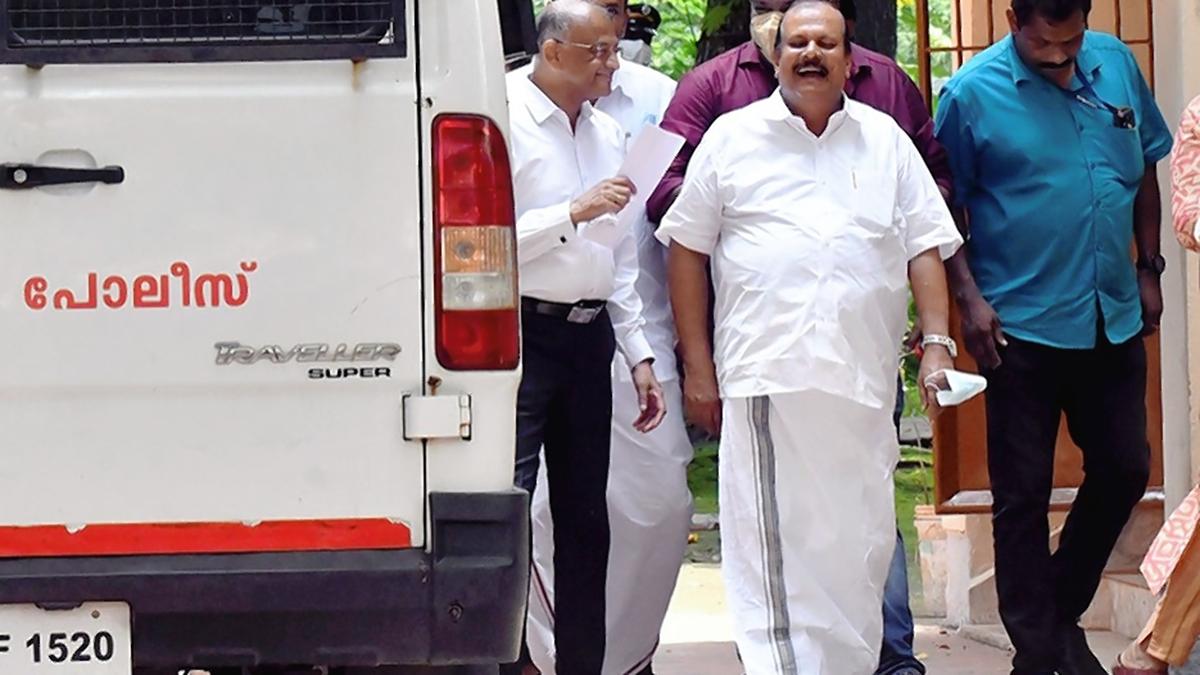 |
|
The legal pursuit of Bharatiya Janata Party (BJP) leader P.C. George has intensified following the High Court's rejection of his anticipatory bail application. The Erattupetta police, acting swiftly on the court's decision, initiated procedures to apprehend Mr. George, arriving at his residence to formally serve a notice. The notice requires his presence at the police station by 2 p.m. on February 22, 2025. However, Mr. George was not at home when the officers arrived, with a family member accepting the notice on his behalf. This development marks a significant escalation in the legal proceedings against the former legislator, stemming from accusations of delivering a hate speech during a television debate.
The core of the legal action lies in a complaint filed by the Muslim Youth League, a prominent Muslim organization. The complaint alleges that Mr. George's statements during the televised discussion were not only offensive but also inflammatory, capable of inciting religious hatred and discord within the community. These allegations are serious and carry substantial legal weight, leading to charges under Section 196(1)(a) and Section 299 of the Bharatiya Nyaya Sanhita (BNS), the Indian penal code, as well as Section 120(o) of the Kerala Police Act. These sections pertain to offenses related to incitement of violence and promoting enmity between different groups on grounds of religion.
Mr. George's legal battle began with a petition for anticipatory bail in a Kottayam sessions court on February 6, 2025, which was unfortunately denied. This rejection compelled him to seek relief from the High Court, but his appeal met a similar fate. The denial of bail underscores the seriousness of the charges against him and suggests a strong case built by the prosecution. This is not an isolated incident; Mr. George has a history of facing similar accusations. In April 2022, he was implicated in another hate speech case following remarks made during the Ananthapuri Hindu Maha Sammelanam. Further adding to his legal troubles, the Palarivattom police registered yet another case against him later in the same year for a speech delivered in Vennala, Kochi, that was deemed communally sensitive. This pattern of alleged hate speech incidents raises concerns about the potential for his rhetoric to incite violence and hatred, highlighting the importance of the current legal proceedings.
The case against P.C. George carries wider implications beyond the immediate legal ramifications. It underscores the ongoing challenge of combating hate speech and incitement of violence in India. The judicial process will play a crucial role in determining the extent of Mr. George's culpability and sending a message about the consequences of such rhetoric. The outcome of this case will significantly influence public discourse on hate speech, freedom of expression, and the role of political figures in maintaining social harmony. The legal arguments will likely center on the interpretation of Mr. George's statements, whether they crossed the threshold of incitement, and the potential impact on public order. The legal precedent established in this case could influence future prosecutions of similar nature, shaping the boundaries of acceptable political speech and holding public figures accountable for their words.
The Muslim Youth League's complaint and subsequent legal actions demonstrate the growing vigilance and proactive approach in addressing hate speech. The organization's commitment to pursuing legal recourse against such actions highlights the importance of safeguarding against potentially harmful rhetoric that can lead to violence and social unrest. The effectiveness of the legal mechanisms and the judicial response will be crucial in establishing a precedent for holding those who disseminate hate speech accountable. The case also serves as a reminder of the importance of responsible public discourse and the need to foster an environment of tolerance and respect among different religious and social groups. The ongoing legal battle will undoubtedly continue to attract public attention and stimulate debates about the complexities of balancing freedom of speech with the need to prevent hate speech and maintain social peace.
